Bookshelf Juxtapositions #146
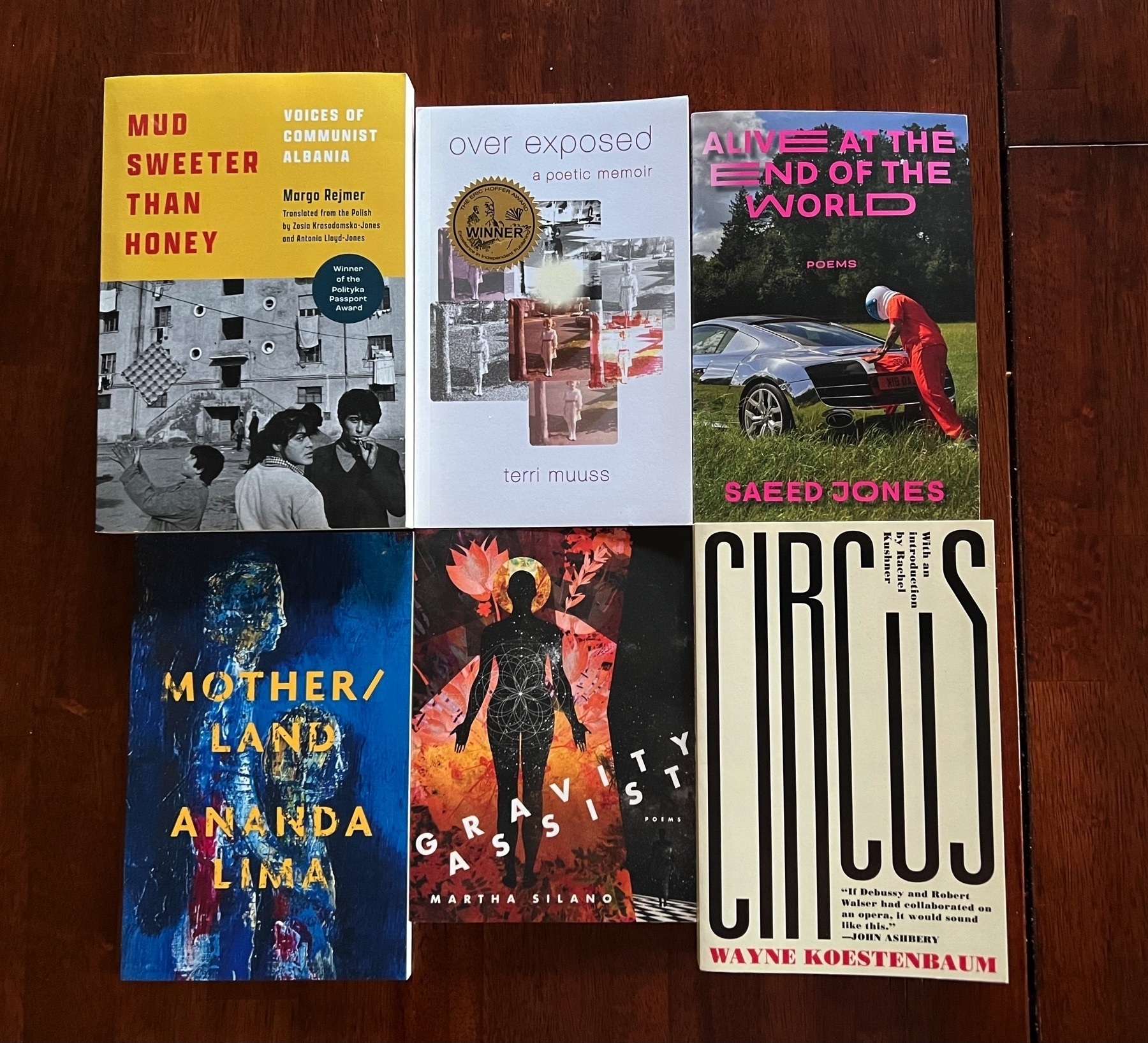
Bookshelf Juxtapositions #146

Sentence by sentence, paragraph by paragraph, piece by piece, the jigsaw puzzle of this essay is finally nearing completion.
Teaching the sexual politics of Deaf Republic to students in Introduction to Literature–mostly second semester freshman–is a huge challenge!
Bookshelf Juxtapositions #145

Asymmetry: Wrote two paragraphs of what will be the concluding section of my essay. Now I need to prep for next week’s classes. Hopefully, time away from the piece will give my subconscious time and space to unravel into clarity the knot that’s got me stuck. How’s that for a mixed metaphor?
Symmetry: now that I’ve finished the novel I was reading, today’s task is to finish a first draft of the essay I’ve been working on.
Finished reading: All the Light We Cannot See by Anthony Doerr 📚
Bookshelf Juxtapositions #144
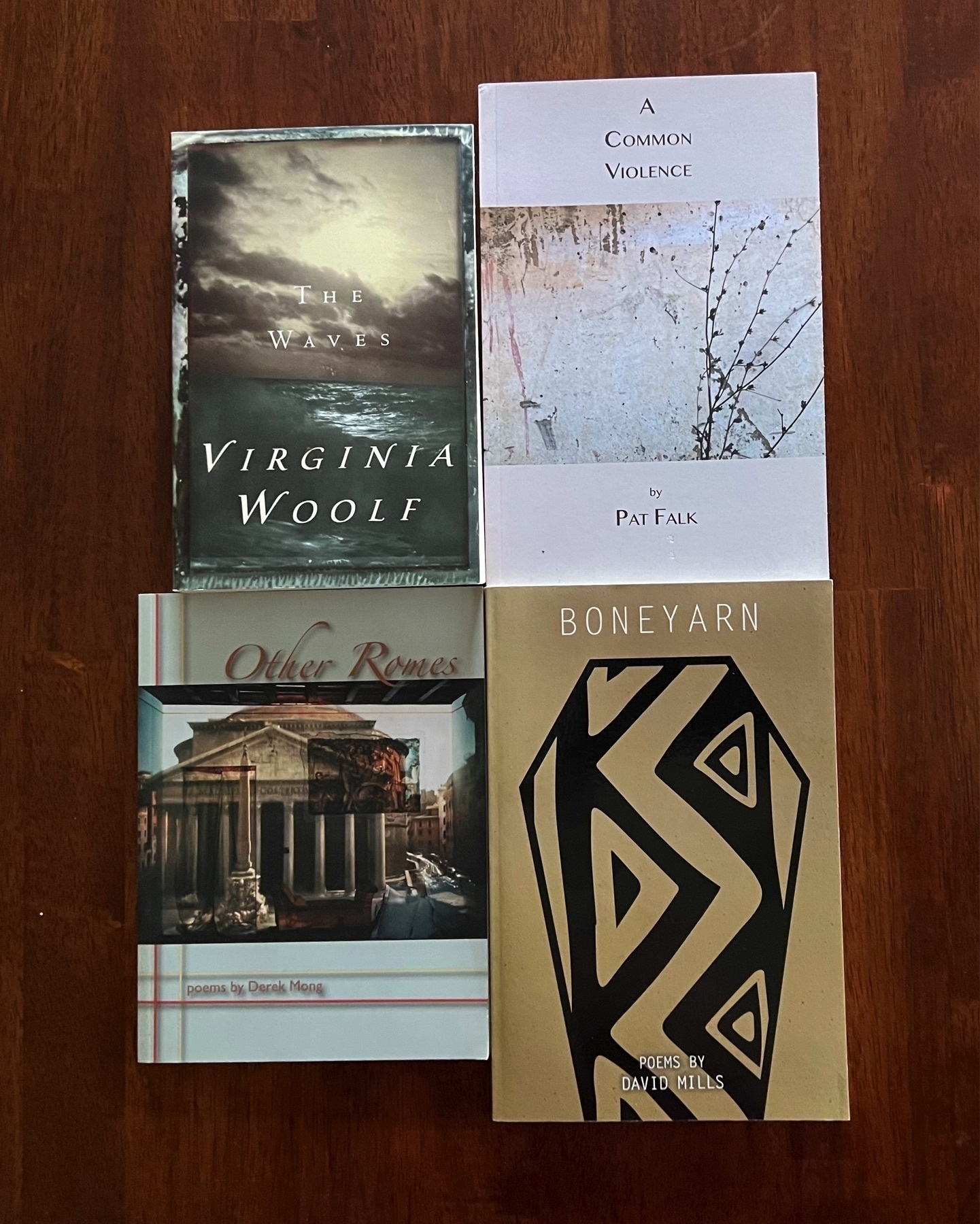
Just got my royalty statement from CavanKerry Press for 2022 for $3.84, which represents five copies sold of The Silence of Men. On the one hand, a paltry sum; on the other, when I consider that the book was published in 2006, a sign of longevity, and of the press' commitment, that moves me.
Bookshelf Juxtapositions #143
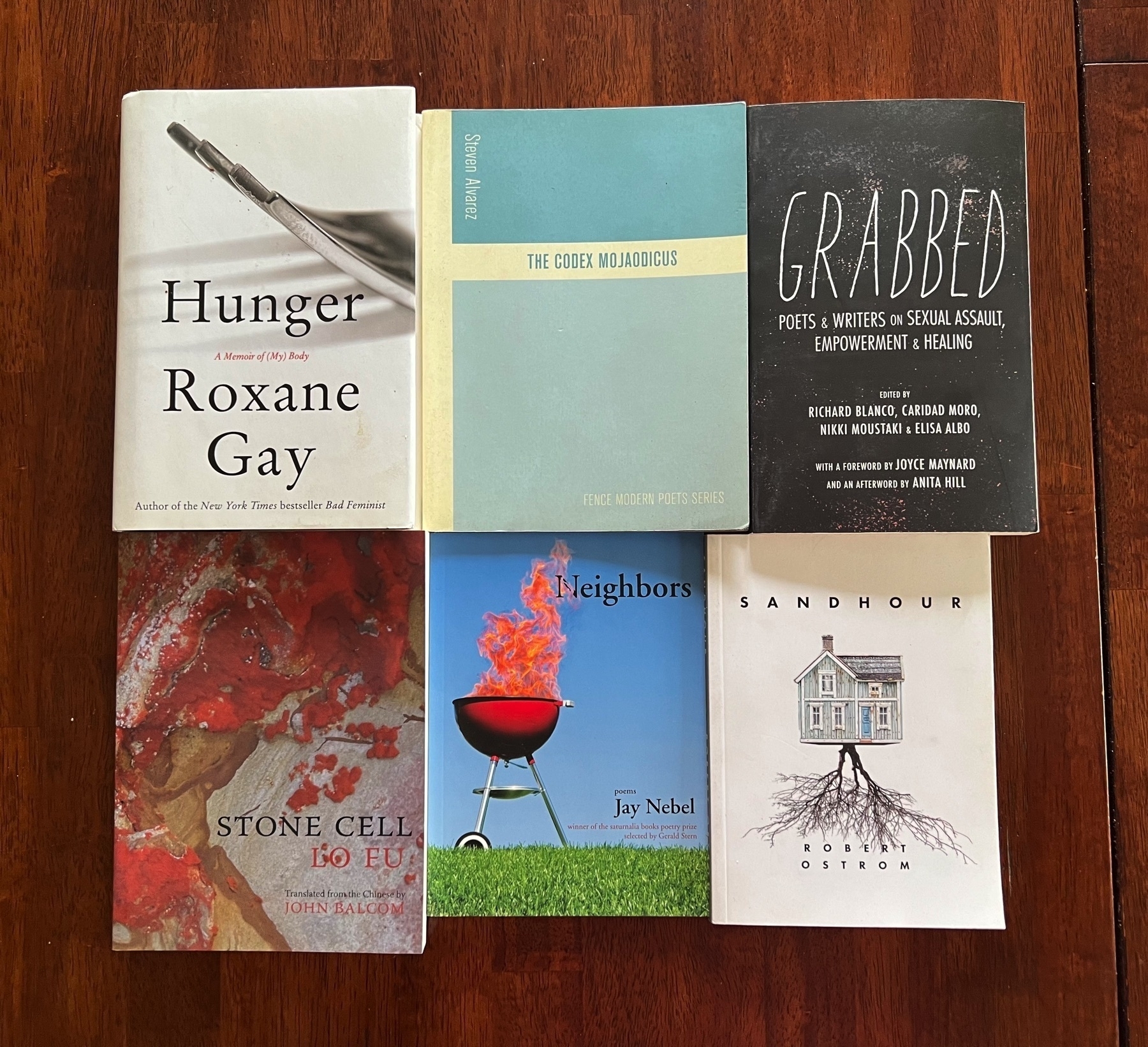
Out of curiosity, anyone on here tried Spoutible?
Even the parts of my first draft that I deleted, thinking them irrelevant, are finding their way back into this essay. Writing prose is such a strange recursive process; this rarely happens when I write poems. In a poem, when I take something out, it tends to stay out.
I’ve reached the point in the essay where I think what I’m saying is stupid obvious and I’m saying it in the most simplistic and reductive way. That usually turns out to be the point at which I learn what the essay is really about and realize I’m on to something.
A knot in prose represents a knot, logical and emotional, in the writer. Unraveling it usually means bringing feeling and thinking into sync within the syntax. So different from a knot in a line of poetry, where, often enough, fixing the music is all you need to do.
Bookshelf Juxtapositions #142
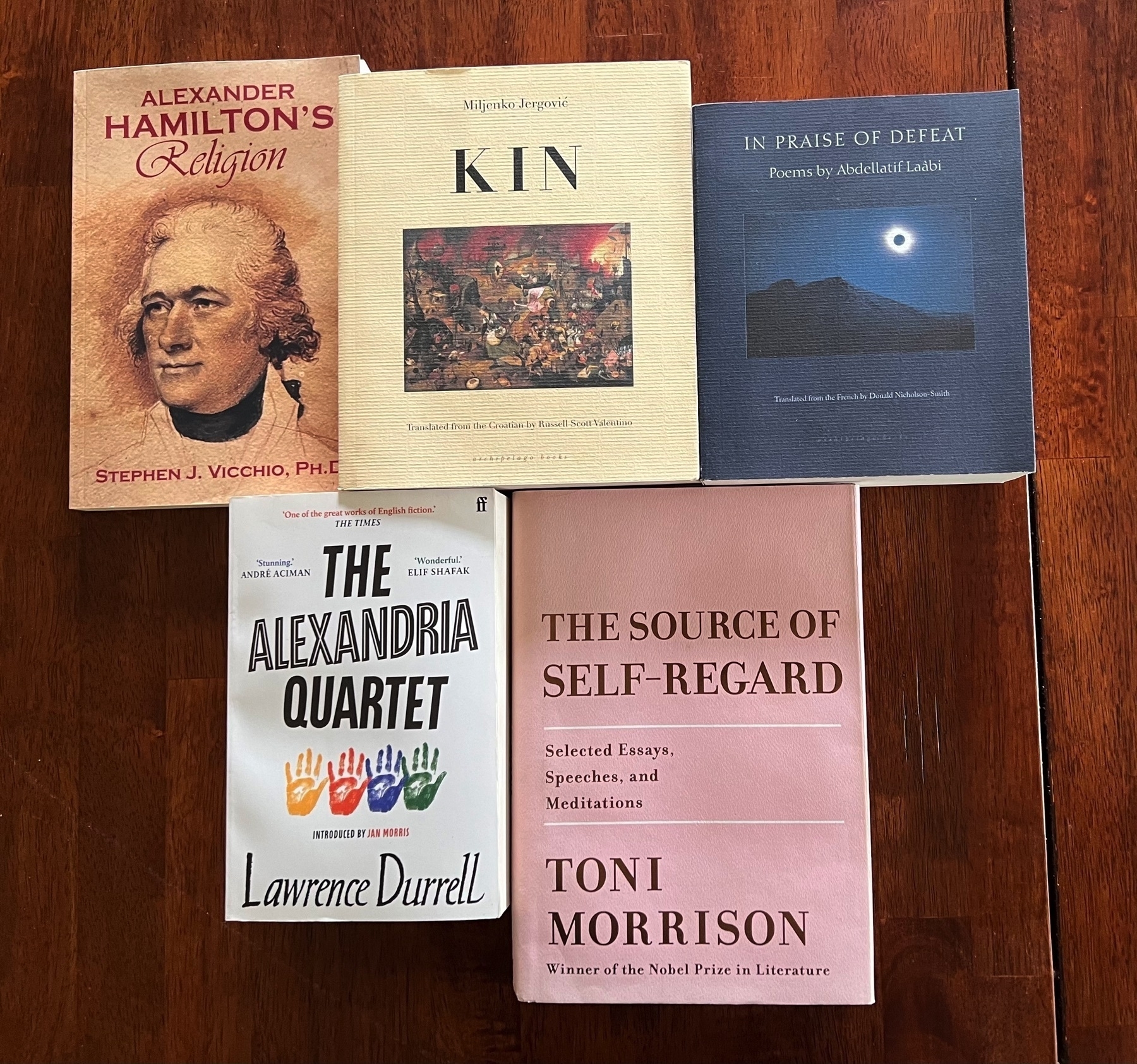
Sometimes patience is a writer’s most effective tool.
Bookshelf Juxtapositions #141
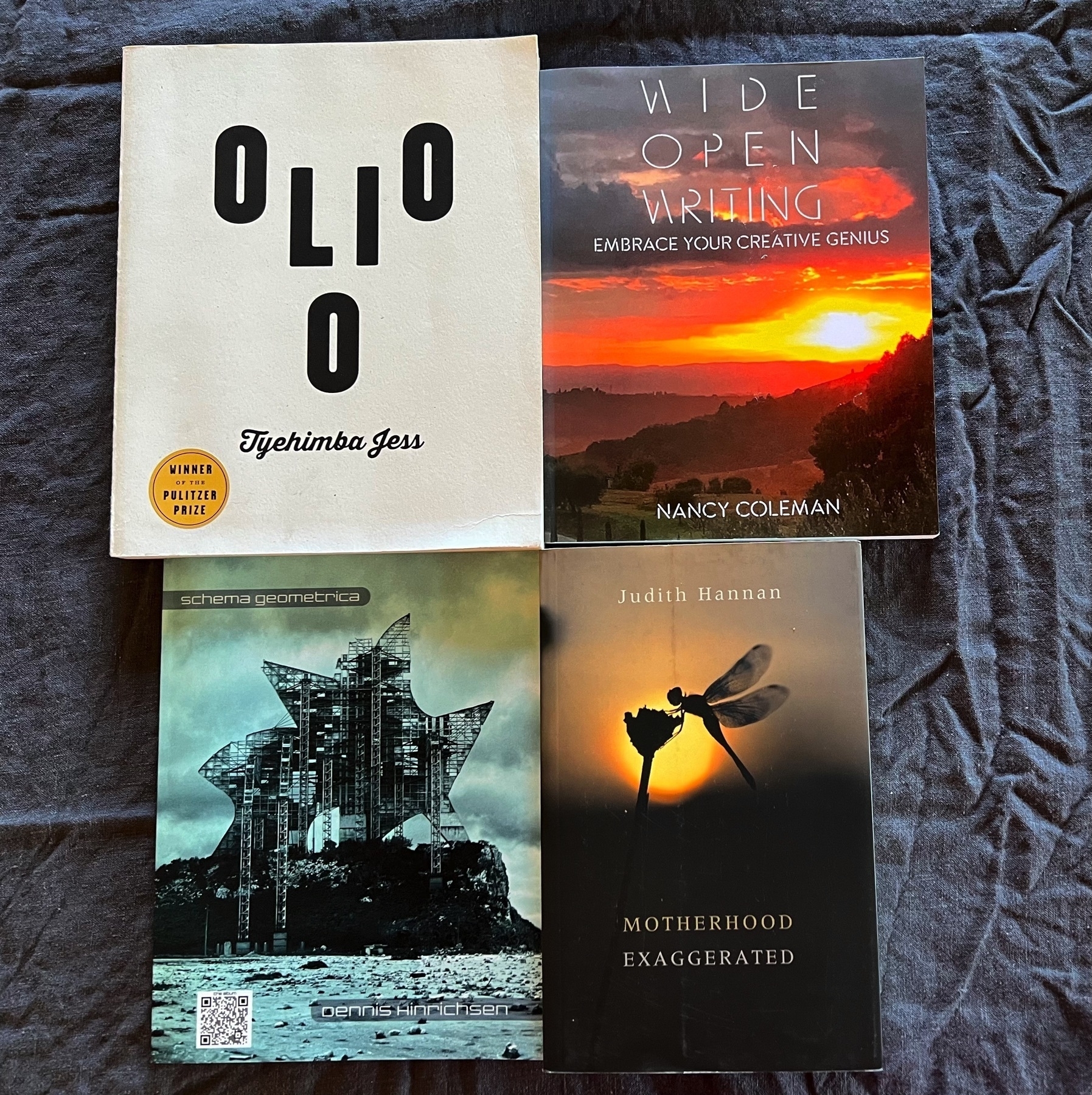
It’s a clothing catalogue.
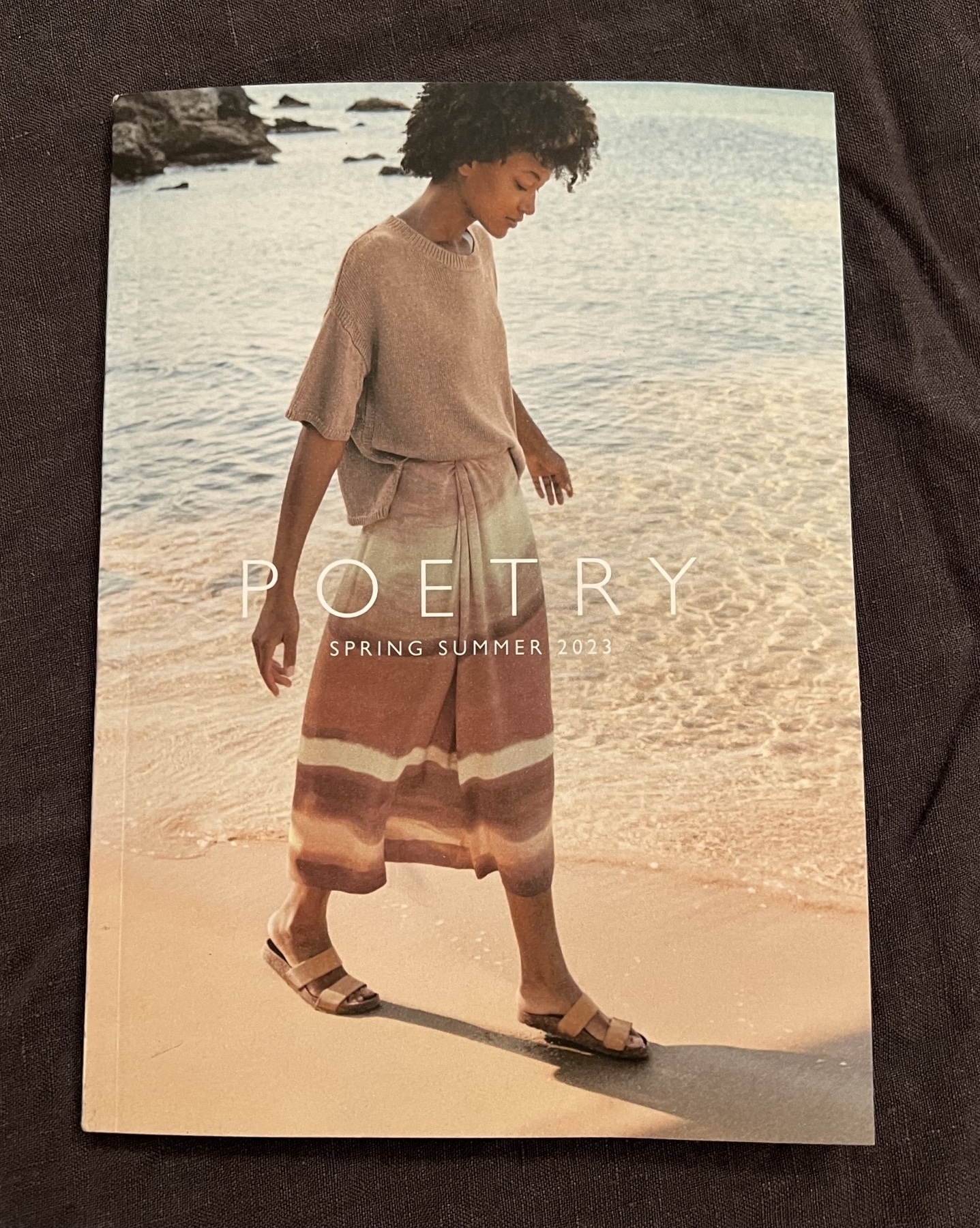
Bookshelf Juxtapositions #140
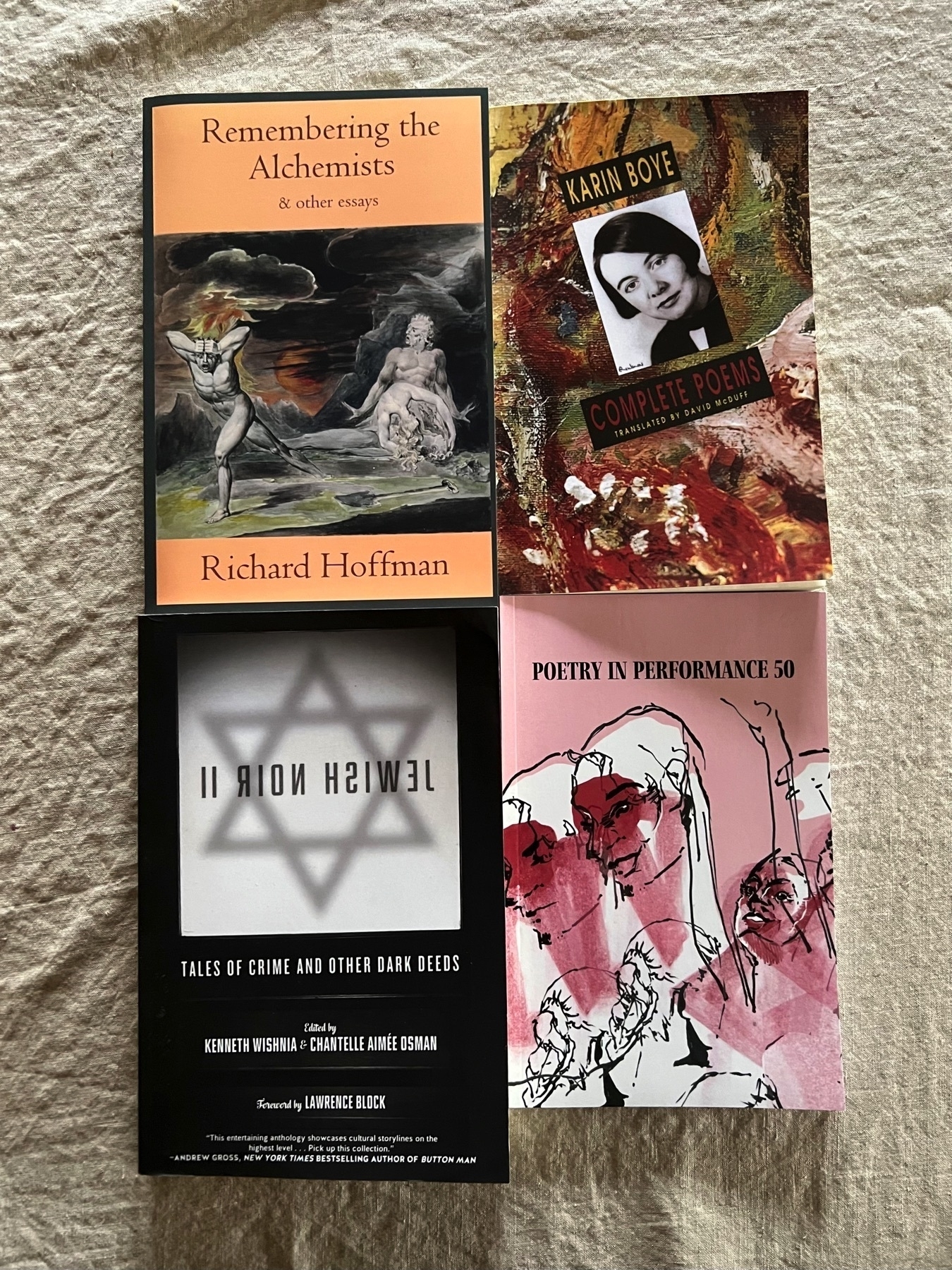
Finished reading: The First Warm Evening of the Year by Jamie M. Saul 📚 It’s supposed to be a love-at-first-sight-ish story, in which the “first sight” is engineered posthumously by a woman who knew both people, except the guy comes off as creepily obsessed and stalker-ish.
I wrote this today in a grant application. I think it’s worth sharing:
According to well-regarded statistics, one in six boys will experience some form of sexual victimization by the time they reach eighteen. That’s an awful lot of boys; but it’s also an awful lot of men, in all walks of life and at all levels of society, whose lives— personal, professional, and political—have been shaped by what we know the trauma of sexual violence can do to a person. The question of what it means for male survivors to return from the alienation of this particular trauma, in other words, goes well beyond a matter of each individual’s personal healing. Especially because we live in a male dominated society, where the professional and political decisions men make can impact the lives of thousands, this question has social, cultural, and political implications as well. I think a poetry exploring that fact is a cultural necessity.
Bookshelf Juxtapositions #139
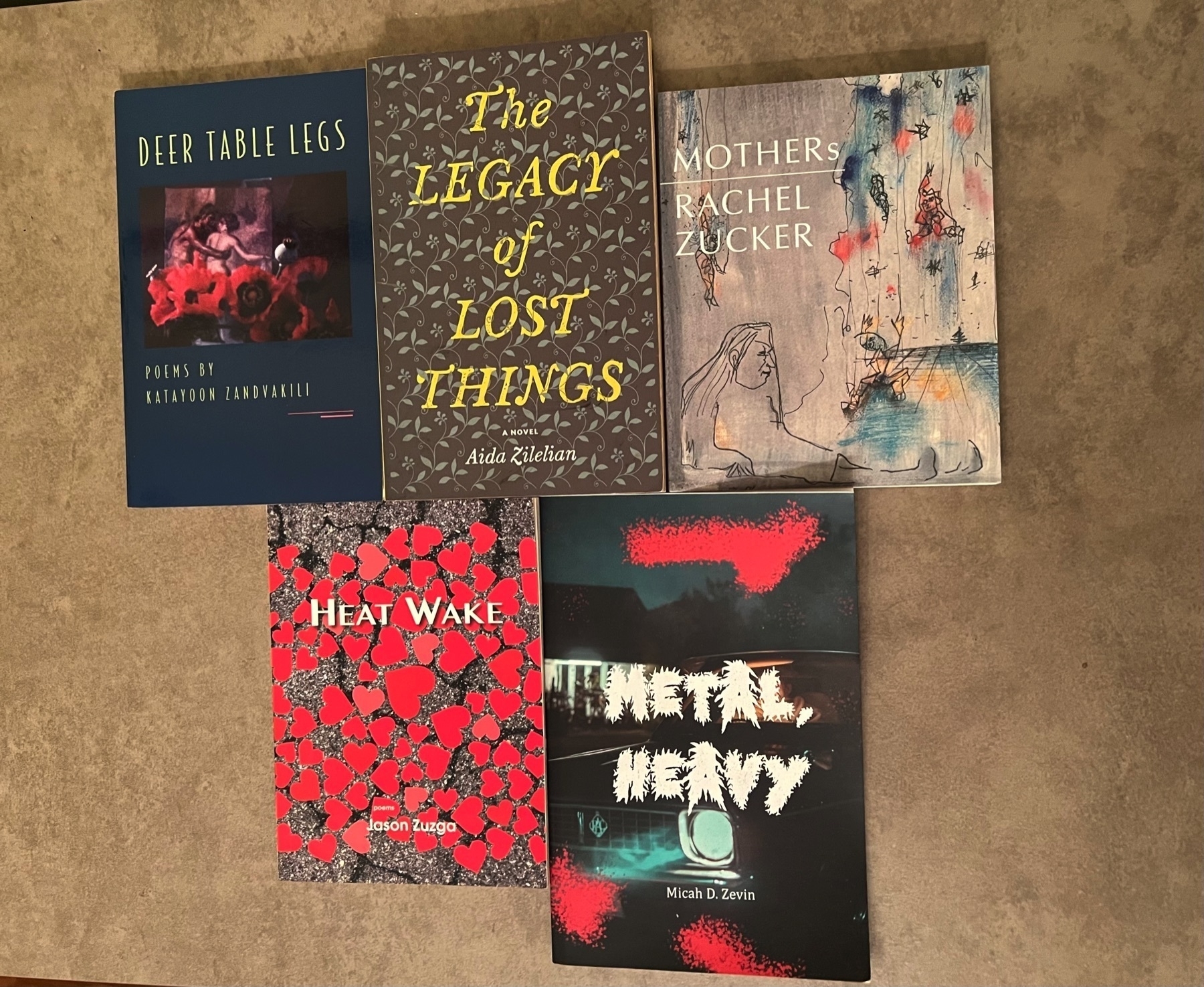
And yet I seem able to cross post. These are coming from my micro.blog.
Strange: Twitter said I exceeded my 2400 tweet limit for today. There is no way I sent that many tweets. I wonder what’s going on.
Interesting discussion at First Tuesdays last night about whether or not prose poetry is actually poetry. I said something I’ve thought for a long time but never expressed. I’m not sure I even agree with myself: a successful prose poem is a poem made up of one very long line.